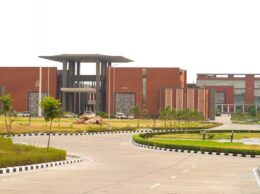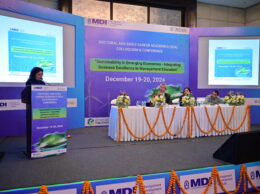New Delhi : New research from Pearson, the world’s leading learning company, shows the massive potential of Generative AI to boost workplace productivity by helping Indian workers to save 51 million hours a week on the routine and repetitive tasks that often fill their day and lead to burnout.
The latest instalment of Pearson’s Skills Outlook series, ‘Reclaim the Clock: How Generative AI Can Power People at Work’ – looks ahead to 2026 and identifies the top 10 job tasks with the most time saved by using the technology, in five countries (Australia, Brazil, India, UK and US).
Pearson’s workforce planning platform, powered by generative AI, finds that the work Gen AI can most effectively support is focused on tasks related to maintaining records, data collection, or researching and compiling information for others.
The ten work tasks with the most hours saved by Gen AI by 2026 in India are:
1. Promote products, services, or programs (4,386,799 hours)
2. Collect data about consumer needs or opinions (3,874,794 hours)
3. Develop marketing or promotional materials (3,513,913 hours)
4. Identify business or organizational opportunities (3,219,578 hours)
5. Explain technical details of products or services (3,095,700 hours)
6. Maintain current knowledge in area of expertise (2,625,409 hours)
7. Maintain operational records (2,602,099 hours)
8. Communicate with others about operational plans or activities (1,798,296 hours)
9. Examine materials or documentation for accuracy or compliance (1,575,060 hours)
10. Evaluate the quality or accuracy of data (1,568,961 hours)
By augmenting basic tasks with generative AI, companies and their workers can reallocate time to focus on the high-value work that humans do best: strategic thinking, collaboration, caring for others, decision-making, innovation, problem-solving, empathy, and leadership.
At an individual level, even small amounts of time saved with Generative AI can help people feel more in control of their job and achieve a better work-life balance.









